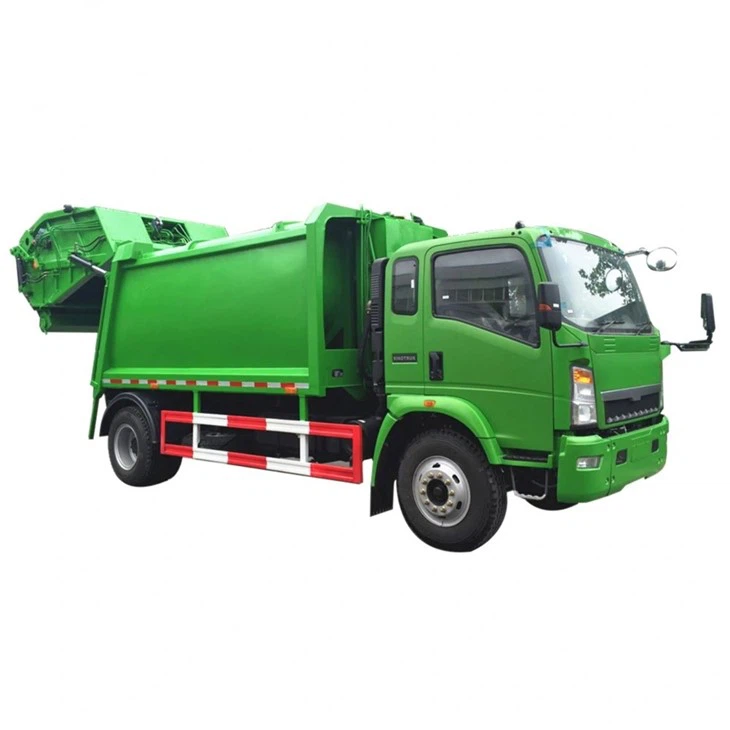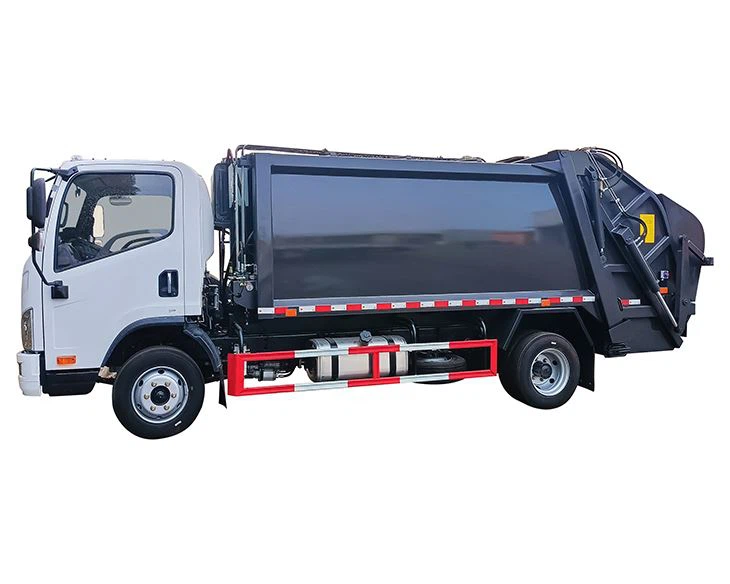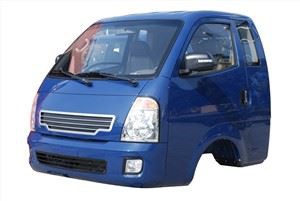Lift Truck for Sale: Your Comprehensive Guide to Choosing the Right One

Finding the right lift truck for sale can be a daunting task, especially with the vast array of options available in today’s marketplace. Whether you are a business owner looking to enhance your warehouse operations or an individual needing reliable lifting equipment, this guide will provide you with essential insights, practical tips, and expert advice on selecting the best lift truck for your needs.
Understanding Lift Trucks
What is a Lift Truck?
A lift truck, also known as a forklift, is a powered industrial vehicle used to lift, move, and stack heavy materials. They are essential in warehouses, factories, construction sites, and distribution centers for efficient material handling.
Types of Lift Trucks
Lift trucks come in various types, suited for different applications and environments. Here are the most common types:
- Counterbalance Forklifts: These are the most common type, characterized by a weight at the rear that counteracts the load. They are versatile and can be used indoors and outdoors.
- Reach Trucks: Designed for narrow aisles, reach trucks have extendable forks that allow them to reach high shelves. Ideal for warehousing operations.
- Pallet Jacks: Also known as pallet trucks, they are used for moving pallets. They come in manual and electric variations.
- Order Pickers: These trucks allow operators to stand on the platform and pick items from shelving. Great for order fulfillment.
- Rough Terrain Forklifts: Built for outdoor use on rough surfaces, these trucks have larger tires and higher ground clearance.
Key Factors to Consider When Buying a Lift Truck
1. Load Capacity
One of the most critical factors to consider is the lift truck’s load capacity. It is essential to ensure that the lift truck can safely handle the maximum load you anticipate.
Practical Tip:
Identify the heaviest loads you’ll be moving and select a lift truck with a capacity higher than that weight to ensure safety and efficiency.
2. Lift Height
Different lift trucks offer varying maximum lift heights. Assess your storage needs to determine how high you need to lift loads.

Practical Example:
If you are storing goods on racks that reach 20 feet in height, consider a lift truck that can comfortably lift above that height.
3. Terrain Type
Consider the type of terrain where the lift truck will be used. Indoor lift trucks are usually smaller and designed for flat surfaces, while outdoor trucks can handle rough terrain.
4. Power Source
Lift trucks can be powered by electricity, diesel, propane, or gasoline. Evaluate which power source is most suitable for your operation.
Practical Tip:
Electric lift trucks are quieter and emit no fumes, making them better for indoor use, while diesel trucks are robust and suited for outdoor environments.
5. Turning Radius
A lift truck’s turning radius affects its maneuverability. Selecting a model with a smaller turning radius can enhance your efficiency in tight spaces.
6. Features and Technology
Modern lift trucks come with various features, including safety systems, automated controls, and telematics. Evaluate the features based on your operational needs.
Practical Example:
If your operation requires a lot of data collection, consider a lift truck equipped with telematics for monitoring performance and maintenance alerts.
Where to Find Lift Trucks for Sale
1. Dealerships
Authorized dealerships are a reliable source for new and used lift trucks. They often provide warranties and service packages that ensure the equipment remains in top condition.
2. Online Marketplaces
Websites like eBay, Craigslist, and specialized equipment resale sites offer a wide variety of lift trucks for sale at competitive prices.
3. Auctions
Industrial equipment auctions can be a great place to find bargains on lift trucks. Just be sure to inspect the equipment thoroughly before bidding.

4. Rental Companies
Renting lift trucks can be a good way to test various models before making a purchase. Many rental companies also sell their used inventory at discounted rates.
Cost Factors of Lift Trucks
1. Purchase Price
The price of a lift truck can vary significantly based on its brand, type, features, and condition. New lift trucks typically cost between $15,000 and $60,000, while used models can range from $5,000 to $40,000.
2. Maintenance Costs
Regular maintenance is crucial to keep your lift truck in optimal working condition. This includes routine checks, oil changes, and parts replacement.
3. Operational Costs
Consider ongoing costs, such as fuel, insurance, and electricity charges for electric models when budgeting for your lift truck.
Cost Comparison Table:
| Lift Truck Type | Average Price Range | Maintenance Costs |
|---|---|---|
| Counterbalance Forklifts | $15,000 – $60,000 | $800 – $2,000/year |
| Reach Trucks | $20,000 – $50,000 | $600 – $1,800/year |
| Pallet Jacks | $3,000 – $10,000 | $300 – $800/year |
| Order Pickers | $15,000 – $40,000 | $500 – $1,200/year |
| Rough Terrain Forklifts | $25,000 – $75,000 | $1,000 – $3,000/year |
Financing Your Lift Truck Purchase
1. Loans
Many financial institutions offer loans specifically for purchasing industrial equipment. Compare rates and terms to find the best deal.
2. Leasing
Leasing allows you to use the lift truck without the full purchase price upfront. This option is suitable for businesses that may need to upgrade equipment frequently.
3. Manufacturer Financing

Some manufacturers provide financing options for their products. This can sometimes offer lower interest rates or better terms.
Practical Tip:
Evaluate your cash flow and financial situation before deciding whether to buy, lease, or loan for your lift truck.
Safety Tips for Operating a Lift Truck
1. Training
Ensure operators receive comprehensive training on lift truck operation and safety protocols. Certified training facilities can provide necessary certification.
2. Pre-Operation Checks
Before using a lift truck, operators should conduct pre-operation inspections to identify potential issues. Common checks include brakes, steering, and load capacity limits.
3. Load Management
Understand the lift truck’s load capacity and never exceed it. Properly secure loads to prevent them from shifting during transport.
4. Awareness of Surroundings
Operators should remain aware of their surroundings, including pedestrians and obstacles. Use spotters when necessary to ensure a clear path.
5. Use Personal Protective Equipment (PPE)
Incorporate the use of gloves, helmets, and other safety gear while operating or working near lift trucks.
Frequently Asked Questions (FAQ)
1. What is the average lifespan of a lift truck?
The average lifespan of a lift truck is around 10,000 hours of operation or about 10-15 years, depending on usage, maintenance, and brand.
2. How do I choose between new and used lift trucks?
Consider your budget, the load capacity you need, and how often you’ll use the lift truck. If you plan to use it heavily, a new truck might be a better investment.
3. Are electric lift trucks better than gas forklifts?
Electric lift trucks are quieter, more environmentally friendly, and cost-efficient for indoor use, while gas forklifts are typically better for outdoor and heavy-duty applications.
4. What maintenance do lift trucks require?
Routine maintenance includes checking fluid levels, inspecting tires, and routine servicing based on the manufacturer’s recommendations.
5. Can I operate a lift truck without certification?
No, operators must be trained and certified according to OSHA regulations to safely operate a lift truck.
6. How often should I replace my lift truck?
Replace your lift truck based on its maintenance history, reliability, and how well it meets your operating needs. Generally, consider replacement after 10,000 hours of operation.
